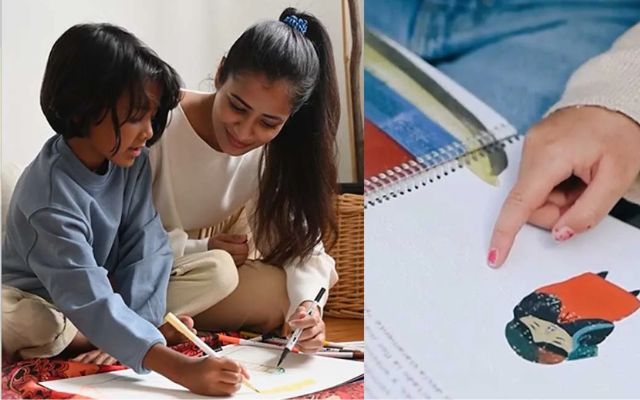- Home/
- Unlocking Childhood Through Free Play: Celebrating Joy, Curiosity And Connection
Unlocking Childhood Through Free Play: Celebrating Joy, Curiosity And Connection

Remember the magic of your own childhood? Climbing trees, inventing games, chasing butterflies, or simply daydreaming under the sky. Those carefree moments weren't just fun—they were formative. Today, however, the sounds of outdoor laughter are being replaced by the quiet hum of screens. Childhood is changing. But it doesn't have to.
Why Play Matters—Now More Than Ever
From the moment a child is born, play becomes their language. It's how they explore, connect, and understand the world. Experts say the first 3,000 days of life —from conception to age eight —are crucial for brain development. And during this window, play is not optional; it's essential.
Bachpan Manao: A Movement to Reclaim Childhood
Recognizing the urgent need to reconnect children with the joy of unstructured play, EkStep and NDTV have launched “Bachpan Manao”—a nationwide movement celebrating childhood through free play and less screen time. The goal? To help parents, educators, and communities rediscover the power of play as a tool for joyful learning.
Dr. Amit Sen, a Senior Child and Adolescent Psychiatrist, captures it perfectly:
“When a child engages in play, it isn't just about joy. It's about building connections in the brain that last a lifetime.”
Indeed, science backs this up. Play activates the prefrontal cortex (decision-making), amygdala (emotional regulation), cerebellum (motor coordination), and hippocampus (memory formation). In short, when a child plays, their whole brain lights up.
From Solitary Play to Team Games: Every Stage Matters As children grow, their style of play evolves—from stacking blocks alone to creating imaginary worlds with friends.
Dr. Manoj Kumar Sharma, Professor of Clinical Psychology, explains:
“Play is a method of exploration—of self, interests, and the outside world. From solitary play in early years to team-based games later, each stage supports connectivity, communication, and holistic growth.”
But there's a growing concern: screens are replacing swings, and passive scrolling is replacing pretend play. Dr. Sharma recommends “digital fasting”—setting aside screenfree time each day for offline, sensory-rich activities.
Learning from the Little Teachers Harpreet Singh Grover, a parent and independent researcher, offers a refreshing perspective:
“To children, everything is play. There's no division in their mind between tasks and play. For example, sorting vegetables at home can become a beautiful moment of learning and bonding.”
His advice? Turn everyday moments into playful ones. Let your child help in the kitchen, splash in puddles, or make up stories under the stars. And whenever possible, take it outside. “Children thrive when they can roam under a tree or chase a butterfly,” Harpreet adds. Simple Play, Big Impact You don't need expensive toys or elaborate plans.
Dipali Som, a content creator and former teacher, believes that the simplest activities make the biggest difference.
“Among the best are pretend play, drawing, colouring, sorting, sensory bins, water play, and outdoor games.”
These activities ignite creativity, boost emotional well-being, and strengthen the parent-child bond. Letting Kids Be Kids At its heart, Bachpan Manao is a gentle reminder to pause, unplug, and play. Because when we let kids be kids— messy, curious, imaginative, and free—we're not just nurturing their childhood. We're shaping confident, empathetic, and resilient adults.
So next time you see your child build a castle out of cushions or turn a stick into a magic wand, don't interrupt. Join in. Laugh with them. Learn from them. Childhood is fleeting, but play makes it unforgettable.
About Us
Bachpan Manao - is a social mission about making the most of the early childhood opportunity for learning and growth. It is about recognizing that. Learning in early childhood (0-8) happens best through joy and play.
Making the most of this opportunity means:
1. CELEBRATING CHILDHOOD
Allowing children (and yourself) to celebrate and enjoy their childhood fully
2. SEEDING SUCCESS
Giving children the best foundation for all-round development
3. DRIVING EQUITY
Enabling skill-building, which will drive equity over time
